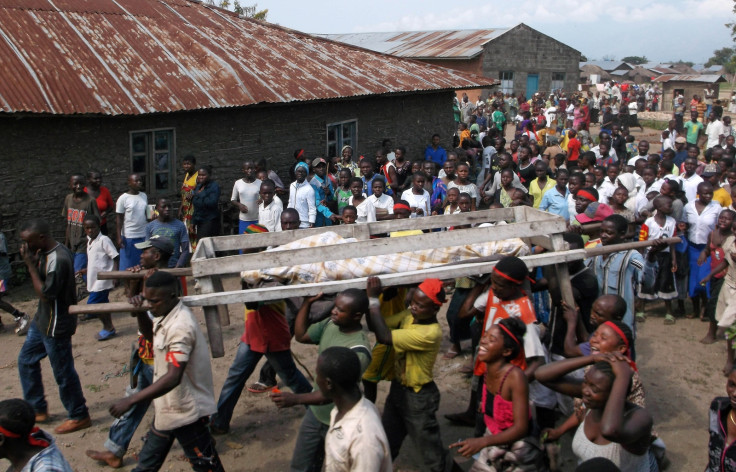UN paints bleak picture of DRC after human rights violations rise 30% in 2016
Alarming new data mirrors stifling of civil liberties and resurgent rebels.
The United Nations has revealed human rights violations committed in the Democratic Republic of Congo (DRC) rose by 30% in 2016.
The past year has been a very difficult period for civil liberties in the DRC, where there were persistent fears violence could erupt following President Joseph Kabila's refusal to relinquish power despite the expiration of his mandate as leader of the resource-rich African nation. This followed two years of failed political talks and an impasse between the ruling and opposition parties.
In 2016, the United Nations Joint Human Rights Office (UNJHRO) documented at least 5,190 violations of human rights nationwide – a "very significant increase" of nearly 30% compared to the number of violations recorded in 2015.
In notes published this week, the UNJHRO attributed this increase to the fact that 2016 had been characterised by the stifling of democratic voices. The postponement of national elections and crackdown on suspected opponents, as well as increased attacks launched by several armed groups in provinces in the east of the country also played a part.
Alarmingly, 64% of the human rights violations documented in 2016 were committed by security officials, who the UNJHRO claimed were responsible for 480 summary and extra-judicial killings.
The UN found that the main culprits responsible for the violations documented last year were members of the Congolese National Police (PNC), accused of committing 1,553 – or 30% of total violations, the majority of which were carried out in Congo's western provinces. This represents a 65% increase compared to 2015, when the UNJHRO linked the PNC to 941 violations.
The UNJHRO also recorded 1,218 violations attributable to the Congolese armed forces (FARDC) - a 10% yearly increase on 2015. The majority of the crimes were allegedly committed in provinces of eastern DRC, where there is a heavy military presence.
This new set of figures, which the UN body says is incomplete due to a lack of resources and access to data, also point to a resurgence in activity from armed groups, accused of committing 38% of all rights violations, including 718 deaths.

The Front for Patriotic Resistance in Ituri (FRPI) now accounts for over 27% of all violations attributed to armed groups. However, the UNJHRO revealed that fighters of the Allied Democratic Forces (ADF) were the principal perpetrators of summary executions documented in 2016, responsible for at least 230 victims.
In 2016, the UNJHRO documented 348 adult victims of sexual violence related to the conflict, down from 375 in the previous year. The large majority of these sexual crimes were committed by armed groups (256), with state agents accused of a further 92 violations.
The UNJHRO also reported 1,102 violations of human rights and fundamental freedoms related to restrictions on democratic space, a 423% increase from the previous year (260 violations). PNC officers allegedly perpetrated more than half of these violations, followed by ANR agents (182 violations), political-administrative authorities (174 violations) and FARDC soldiers (155 violations).
As the country slipped into crisis, the latest figures reveal an increasing restriction of the democratic space, where members of political parties were the main victims of these violations (1,105), followed by members of civil society organisations (348), and journalists and other media professionals (86).
The UN, meanwhile, said it welcomed the conviction of at least 167 FARDC soldiers and 59 PNC officers found guilty of acts constituting human rights violations across the DRC. This, the rights body said, "demonstrates the commitment of the authorities in the fight against impunity".
© Copyright IBTimes 2025. All rights reserved.






















